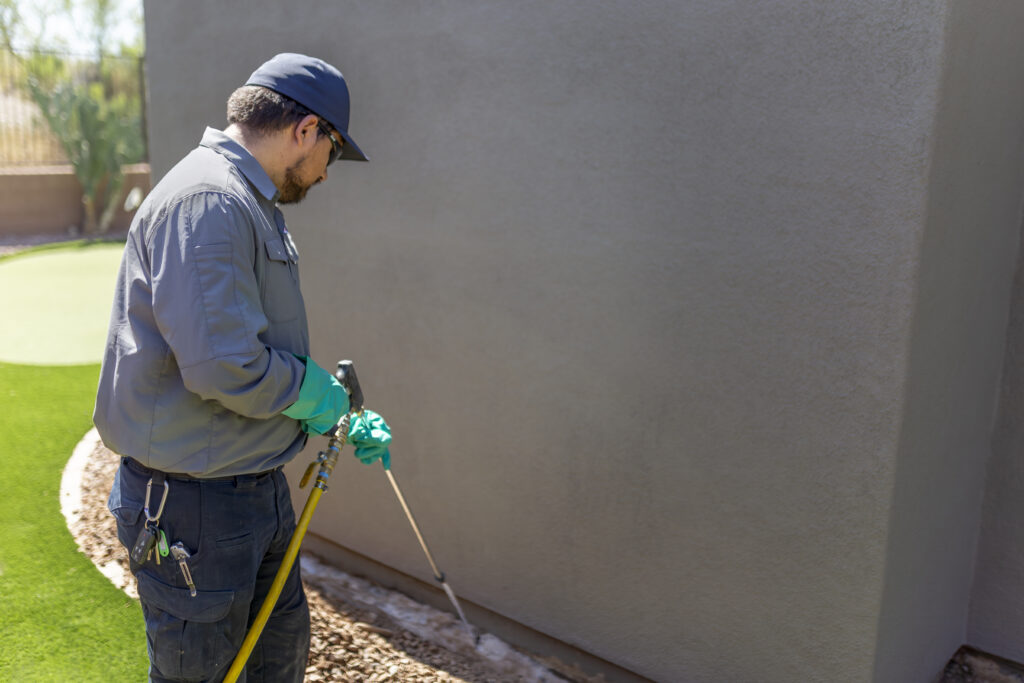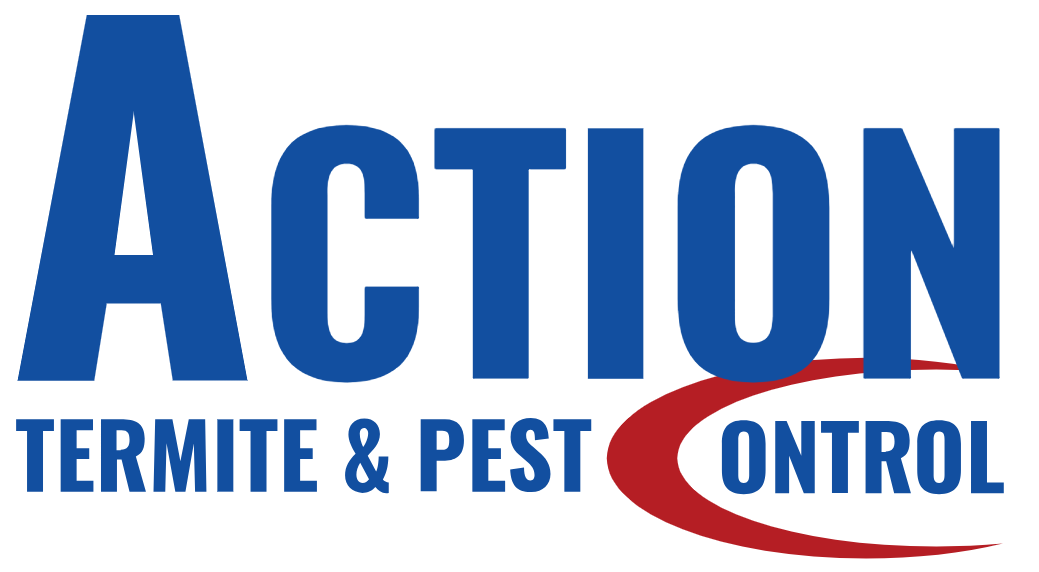Spraying for Termites: Is it Safe?
Spraying for termites is a common method used to control and eliminate termite infestations in homes and buildings. Homeowners often turn to termite spraying services to tackle these problematic pests. However, there are concerns about the safety of this method and its impact on human health and the environment.
In this article, we will explore the safety of spraying for termites and examine the effectiveness of different termite control treatments. We’ll provide valuable insights into the various methods available to control termite infestations, discuss the advantages of professional termite spraying services, and shed light on preventive measures to safeguard your property against future termite problems.

Key Takeaways:
- Spraying for termites is a common method used for termite control and elimination.
- Concerns exist regarding the safety of termite spraying and its impact on human health and the environment.
- Professional termite spraying services offer targeted treatment and long-lasting effectiveness.
- Preventive measures are vital to protect your property from future termite infestations.
- Exploring eco-friendly alternatives can provide environmentally conscious termite control options.
Understanding Termiticide Treatment and Its Applications
Termites can cause severe damage to homes and structures, making effective termite control essential. One of the most commonly used methods for termite control is termiticide treatment. Termiticides are chemical compounds designed to target and eradicate termite infestations. Understanding how termiticide treatment works and its various applications can help homeowners in their battle against these destructive pests.
How Termiticides Function against Termite Infestations
Termiticides are specifically formulated to disrupt the central nervous system of termites. When termites come into contact with termiticides, they absorb the chemicals and unknowingly carry them back to the colony. This process often results in the extermination of the entire termite colony, including the queen.
Treatment with termiticides offers several advantages:
- Effective eradication of termite infestations
- Protection against future termite damage
- Minimal disruption to the structure of the building
Different Methods of Applying Termiticides
Termiticides can be applied using various methods, depending on the extent and location of the termite infestation. The most common methods of applying termiticides include:
- Direct soil applications: This involves applying termiticides in the soil surrounding the building’s foundation. The termiticide creates a barrier that prevents termites from entering the structure.
- Direct wood applications: When termites infest wooden structures, termiticides can be directly applied to the wood. This method is particularly effective for localized infestations.
- Bait stations: Some termiticides can be used in bait stations, which are strategically placed around the property. Termites are attracted to the bait and carry the termiticide back to the colony, effectively eliminating the infestation.
Timeframe for Termiticide Effectiveness
The effectiveness of termiticide treatment can vary depending on several factors, including the type of termiticide used, the severity of the infestation, and environmental conditions. In general, termiticides are designed to provide long-term protection against termites. However, it is important to note that termites may reinfest treated structures if preventive measures are not taken.
Experts recommend regular termite inspections to ensure the ongoing effectiveness of the termiticide treatment. This allows for early detection and prompt action in case of any signs of termite activity.
Spraying for Termites
When it comes to termite control, many homeowners choose professional termite spraying services to effectively eliminate infestations. However, it is crucial to evaluate the safety of these services to protect both human health and the environment.
Evaluating the Safety of Professional Termite Spraying Services
Professional termite spraying services rely on the expertise of trained technicians who utilize specialized equipment and follow strict safety protocols. These professionals are equipped to handle the necessary chemicals and ensure their proper application.
By hiring professional termite spraying services, homeowners can benefit from the knowledge and experience of exterminators who understand the potential risks associated with termite spray treatments. They can recommend the most suitable and safe treatment options based on the unique needs of each property, considering factors such as the size of the infestation, the type of termites present, and the structural composition of the building.
Furthermore, professional termite spraying services prioritize the safety of occupants and the environment by adhering to industry regulations and guidelines. They use high-quality products that are approved for residential use and minimize any potential harm to non-target organisms.
Advantages of Liquid Termiticide Treatments
Liquid termiticide treatments offer numerous advantages in termite control. These treatments involve applying liquid termiticides to the soil or directly to infested areas, creating a protective barrier that termites cannot penetrate.
One of the main advantages of liquid termiticides is their targeted treatment approach. Professional exterminators can accurately identify termite entry points and strategically apply the treatment, effectively eliminating the infestation and preventing future termite activity.
Additionally, liquid termiticide treatments provide long-lasting effectiveness. They work not only as a curative measure but also as a preventative solution, offering ongoing protection against potential re-infestations. Regular inspections and reapplications can further enhance the efficacy of liquid termiticide treatments, ensuring continuous termite control.
Understanding the Fumigation Process and Safety Measures
While termite spraying may involve liquid termiticide treatments, it is essential to understand other termite control methods, such as fumigation. Fumigation is typically conducted in severe infestations or when localized treatments are not viable.
The fumigation process involves sealing the infested structure and introducing a gas-based termiticide. This gas penetrates all areas of the building, reaching every nook and cranny where termites may reside. It effectively eradicates the entire termite population within the structure.
To ensure the safety of the fumigation process, several precautionary measures are taken. Occupants are required to vacate the premises during fumigation, ensuring their safety and minimizing exposure to the powerful termiticide gas. Professional fumigators use specialized equipment to control and monitor the gas levels, ensuring proper dispersion and ventilation before allowing occupants to re-enter the treated area.
Overall, understanding the safety of professional termite spraying services, the advantages of liquid termiticide treatments, and the fumigation process with its associated safety measures is crucial for successful termite control. By opting for professional services and following recommended safety protocols, homeowners can effectively eradicate termite infestations and safeguard their properties.
Professional Termite Control: A Necessity for Effective Treatment
When it comes to handling termite infestations, opting for professional termite control services is essential for effective treatment. Professional exterminators possess the necessary expertise and tools to accurately identify and eliminate termite infestations, ensuring thorough eradication. By hiring professionals, homeowners can prevent further damage to the structure of their buildings and safeguard their properties.
With years of experience in the field, professional termite control technicians understand the behavior and habits of termites, allowing them to devise targeted treatment plans. Their in-depth knowledge helps them locate termite colonies, including those hidden within walls, beneath floors, or in hard-to-reach areas.
Professional termite control companies employ a wide range of advanced techniques and technologies to eradicate termites effectively. These may include the use of liquid termiticides, termite baits, and thermal imaging cameras to detect termite activity. By combining these tools with their expertise, professionals can ensure a comprehensive and successful termite treatment.
Furthermore, professional termite control technicians follow industry standards and regulations to ensure the safe and proper use of treatment methods. They are trained to handle and apply termiticides responsibly, minimizing risks to human health and the environment.
Overall, entrusting termite control to professionals is crucial for achieving effective treatment results. Their knowledge, experience, and access to advanced tools enable them to address termite infestations efficiently, providing homeowners with peace of mind and a termite-free environment.
The Safety Profile of Liquid Termiticides
Liquid termiticides are a widely used method for termite control, thanks to their effectiveness in eliminating termite infestations. However, it is crucial to consider the safety profile of these chemicals. While liquid termiticides can be toxic to insects, proper precautions are taken during their application to minimize the risk to humans, pets, and the environment.
When using liquid termiticides, it is important to follow the manufacturer’s instructions carefully. This includes wearing protective gear such as gloves and masks and ensuring proper ventilation during the application process. Professional termite control services are equipped with the knowledge and experience to handle liquid termiticides safely.
Additionally, liquid termiticides typically have a low potential for leaching or residual effects. This means that once the application process is complete and the product has dried, the risk of exposure to humans and pets is significantly reduced. However, precautions should still be taken to prevent contact with treated areas until they have fully dried.
Furthermore, advancements in termiticide technology have led to the development of products with reduced toxicity to non-target organisms. Some liquid termiticides even have specific formulations that are less harmful to beneficial insects such as bees and other important pollinators. By choosing environmentally friendly options, homeowners can further minimize the impact on the ecosystem.
In summary, while liquid termiticides are effective in controlling termites, understanding their safety profile is essential. Following proper application procedures and relying on professional termite control services ensure the safe and responsible use of liquid termiticides, protecting both human health and the environment.
Preventive Measures to Ensure Long-Term Protection Against Termites
After undergoing termite treatment, it is crucial to take proactive measures to safeguard your home from future termite infestations. By implementing preventive strategies, you can ensure long-term protection against these destructive pests. This section will explore effective preventive measures, including maintaining a termite-free environment and conducting regular inspections to detect potential signs of termite activity early on.
Effective Strategies for Termite Prevention Post-Treatment
One of the key preventive measures is to maintain a termite-free environment around your property. Remove any decaying wood or debris near your home’s foundation, as they can attract termites. Additionally, ensure proper drainage to prevent water accumulation, as excessive moisture can create a conducive environment for termites. Regularly trim shrubs and plants to avoid contact with your home’s structure, as termites can use these as bridges to access the building.
Another effective strategy is to conduct regular inspections to identify and address any potential termite problems promptly. Inspect wooden structures, crawl spaces, and basements for signs of termite activity, such as mud tubes or discarded wings. If you notice any suspicious signs, contact a professional termite control company to perform a thorough inspection and take appropriate action if necessary.
DIY Versus Professional Preventative Practices
When it comes to termite prevention, homeowners often wonder whether they should take a DIY approach or seek professional assistance. While DIY methods can be cost-effective, they may not provide the same level of protection as professional termite preventative practices. Professional termite control companies have the expertise, experience, and specialized equipment to implement comprehensive preventative measures that address the unique needs of your property.
Professional termite preventative practices may involve the application of termite barriers, such as liquid termiticides or physical barriers, to create a protective shield around your home. These treatments are specifically designed to repel or eliminate termites, providing long-lasting protection against future infestations. Additionally, professional termite control companies offer regular maintenance and monitoring programs to ensure continued termite prevention effectiveness.
Although DIY termite prevention methods, such as using termite-resistant materials or installing termite bait stations, can provide some level of protection, they may not be as comprehensive or reliable as professional treatments. It is essential to weigh the cost, time, and effort required for DIY methods against the potential risks and limitations they may have.
By implementing effective preventive measures and considering the benefits of professional termite preventative practices, homeowners can significantly reduce the risk of termite infestations and protect their property from costly damages.
Exploring Eco-friendly Alternatives for Termite Extermination
In recent years, there has been a growing concern about the environmental impact of traditional termite extermination methods. Homeowners are seeking eco-friendly alternatives that are effective in controlling termite infestations without harming the environment. This section will explore two such alternatives: non-toxic termite treatments and natural termite control methods.
Pros and Cons of Non-toxic Termite Treatments
Non-toxic termite treatments offer a safer alternative to traditional chemical-based extermination methods. These treatments are formulated using eco-friendly ingredients that are harmless to humans, pets, and the environment. One of the significant advantages is their effectiveness in eliminating termites while minimizing health risks. However, it’s important to note that non-toxic treatments may require multiple applications and may not provide immediate results compared to chemical-based options. Additionally, larger termite infestations may require a combination of non-toxic treatments and other methods for complete eradication.
Overview of Natural Termite Control Methods
Natural termite control methods utilize organic and biodegradable materials to deter and eliminate termites. Some common natural methods include:
- Cardboard Traps: Using cardboard traps to attract termites away from the structure and into the traps.
- Beneficial Nematodes: Introducing microscopic worms that prey on termites into the soil around infested areas.
- Orange Oil: Using orange oil, derived from orange peels, to kill termites on contact.
- Vinegar: Applying vinegar to termite-infested areas can help deter them.
- Boric Acid: Sprinkling boric acid in areas prone to termite activity can kill termites and prevent infestations.
While natural termite control methods offer an eco-friendly approach, they may require frequent monitoring and repeated applications for long-term effectiveness. It’s essential to consult with a professional termite control service to determine the most suitable natural methods for your specific infestation.
Conclusion
In conclusion, professional termite spraying performed by trained experts can be a safe and effective solution for termite control. By relying on professionals who understand different termite control methods, homeowners can ensure the safety of their homes and families while effectively eliminating termite infestations.
To achieve long-term protection against termites, it is crucial for homeowners to have a comprehensive understanding of the various termite control methods, their safety profiles, and the preventive measures that should be implemented. By following best practices and seeking professional assistance when needed, homeowners can effectively control and prevent termite infestations, safeguarding the structural integrity of their properties.
By prioritizing safety and staying informed about proven termite control strategies, homeowners can confidently address termite infestations while minimizing any risks to their health and the environment. Regular inspections, prompt action, and a proactive approach to termite prevention are key to maintaining a termite-free home for years to come.
FAQ
Is spraying for termites safe?
Yes, when done properly by professionals, spraying for termites can be safe and effective. Professionals take precautions to minimize any risks to human health and the environment.
How do termiticides work against termite infestations?
Termiticides work by disrupting the termites’ central nervous system, eventually leading to their death.
What are the different methods of applying termiticides?
Termiticides can be applied through direct soil applications, direct wood applications, and bait stations.
How long does it take for termiticide treatment to be effective?
The effectiveness of termiticide treatment can vary, but it typically takes some time for the termiticide to spread and eliminate the termite colony. The timeframe for termiticide effectiveness depends on factors such as the type and extent of the infestation.
Are professional termite spraying services safe?
Yes, professional termite spraying services can be safe when conducted by trained professionals who follow safety measures to protect human health and the environment.
What are the advantages of liquid termiticide treatments?
Liquid termiticide treatments offer targeted treatment and long-lasting effectiveness against termites.
What is the fumigation process for termite control?
The fumigation process involves the use of gaseous termiticides to eliminate termites. Safety measures are taken during the fumigation process to ensure the protection of human health and the environment.
Why is professional termite control necessary for effective treatment?
Professional termite control services are necessary because exterminators have the expertise and tools to identify and eliminate termite infestations thoroughly. Hiring professionals ensures the eradication of termites and prevents further damage to the structure of a building.
Are liquid termiticides safe to use?
Liquid termiticides can be toxic to insects. However, precautions are taken during application to minimize the risk to humans, pets, and the environment.
What preventive measures should be taken to protect against termites?
To ensure long-term protection against termites, homeowners should maintain a termite-free environment and implement regular inspections. Consulting with professionals and following their recommended preventative practices is also advisable.
What are the pros and cons of non-toxic termite treatments?
Non-toxic termite treatments offer eco-friendly alternatives for termite extermination. However, they may not be as immediately effective as traditional termiticides.
What are some natural termite control methods?
Natural termite control methods include the use of botanical oils, nematodes, and physical barriers to deter termites.

 BED BUGS
BED BUGS SCORPIONS
SCORPIONS RODENTS
RODENTS BEES
BEES MOSQUITOS
MOSQUITOS TAP INSULATION
TAP INSULATION PEST PROTECTION PLAN
PEST PROTECTION PLAN WEEDS
WEEDS


